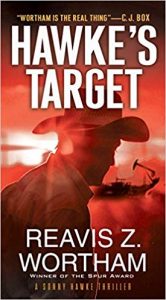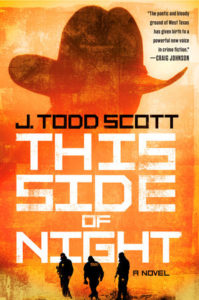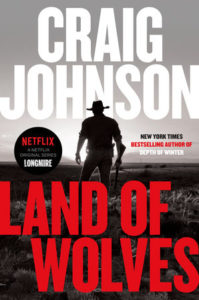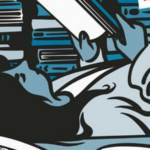“We’ve lost touch with our agrarian roots.”
Laura Lippman gave me this assessment (and more) long ago when I worried that The Clincher, which features a young woman who earns her living as a horseshoer in rural Oregon, could find a readership. Such a quirky occupation. Would the average mainstream or mystery lover be able to define farrier, let alone read about one?
She’d nailed the crux of the matter in an instant. Go back in history far enough and every life was agrarian. In today’s world, more than half the population lives in urban and suburban areas, well removed from the world of wildfires, hours long wait for medical care or emergency assistance, unreliable cell and internet service, loose livestock, and other facets unique to rural life.
The first time I was in Manhattan meeting with my literary agent, I remarked on how completely foreign the environment was to me. A few days earlier, I’d been riding with my husband several miles from our home when we encountered a bear on a tight trail. Then we experienced a wonderful moment of discovery—our new horse was so brave, she could intimidate the oncoming bear into yielding to two horse riders.
“How close were you?” my agent asked, aghast.
I indicated patrons facing us across the center of Grand Central’s Oyster Bar.
He shook his head. “I haven’t been that close to a bear in a zoo.”
Yet he was as at home in NYC’s throbbing, anonymous bustle as rural people are living miles outside of a town where a person’s fingers outnumber the stoplights and we deal with our troubles on our own or together long before it occurs to us to call for help.
Happily, here’s what else Ms. Lippman told me about novels with a distinctly rural flavor:
“I’d read it.”
With that, here are half a dozen writers of crime fiction who reliably draw readers to rural roots around the world with an evocative flair that is both gritty and beautiful.

Reavis Z. Wortham
Reavis (pronounced REV-iss, not REEV-iss), is the writer who cracked me up relating how he admonished his editors, “Don’t dick with my dialogue.”
Oh, bless him. Because when I let one character describe another’s job as driving truck, I was in for many rounds of fighting for the phrase, first with Word, then with my editor, copy editor, and proofreader. But “driving truck” is exactly how my truck-driving sister-in-law (and countless others) express that method of earning wages.
Wortham writes the Texas Red River mystery series (Laying Bones comes out in 2020) and the Sonny Hawke thriller series.
Hawke’s Target, the latest, takes readers along with the Texas Ranger to deal with a vigilante and a savage clan.

J. Todd Scott
John Sandford called Scott’s High White Sun “the best cop novel I’ve read in years.”
I’m just finishing Scott’s latest, This Side of Night, and love the surprises, the pace, and the pull of the setting as we’ve scraped through Mexico and the west Texas borderlands in a triangular story that was inspired by the horrifying 2014 Iguala disappearances. It’s a brutal story that thankfully doesn’t linger on gore, but instead casts an eye to insightful observations.

Kris Lackey
Greasy Bend, Lackey’s 2019 story featuring Chickasaw Lighthorse Police detective Maytubby and local deputy Hannah Bond brings an interesting law enforcement agency overlap to the Oklahoma badlands setting where seemingly unlinked deaths lead to much more. There is not one extra word in this spare, satisfying follow-up to the fine 2017 debut, Nail’s Crossing. Okay, some series don’t release a new novel every year; Lackey is worth the wait.

Craig Johnson
Johnson’s Longmire series is one of the most solid, with the well-drawn Sheriff Walt Longmire intriguing readers as much through his action and deductive reasoning as his piano-playing and reading of the classics. Last year’s Depth of Winter brought Longmire through a harrowing fish-out-of-water thrill in northern Mexico. In this year’s Land of Wolves—the title comes from a Basque proverb “a land of strangers is a land of wolves”—we’re back to Wyoming and still enjoying the lean, thoughtful prose with zingers that can make you cackle.

Jane Harper
Come to the land Down Under. Harper hit the ground running with her 2016 debut, The Dry, set hours west of Melbourne, where a years-long drought eroded the land and years-held secrets eroded the people. Eric Bana is set to play the lead, Aaron Falk, in the screen adaptation.
In Harper’s latest, The Lost Man, readers are immersed in South West Queensland where a death on a remote cattle station means that an investigating law enforcement officer must be sent all the way from Brisbane.

Christine Carbo
Carbo’s suspense novels are essentially standalones, though her characters may have a passing nod from book to book as her setting stays in northern Montana and the publisher calls it the Glacier (for Glacier National Park) Mystery Series.
She debuted with The Wild Inside and has delivered steadily through her latest, 2018’s A Sharp Solitude, where we root for flawed characters to overcome their pasts, their imperfections, and the harsh difficulties posed by the wilderness. She is at work on novel number five, so happily, we’ll see more from this excellent writer.

















